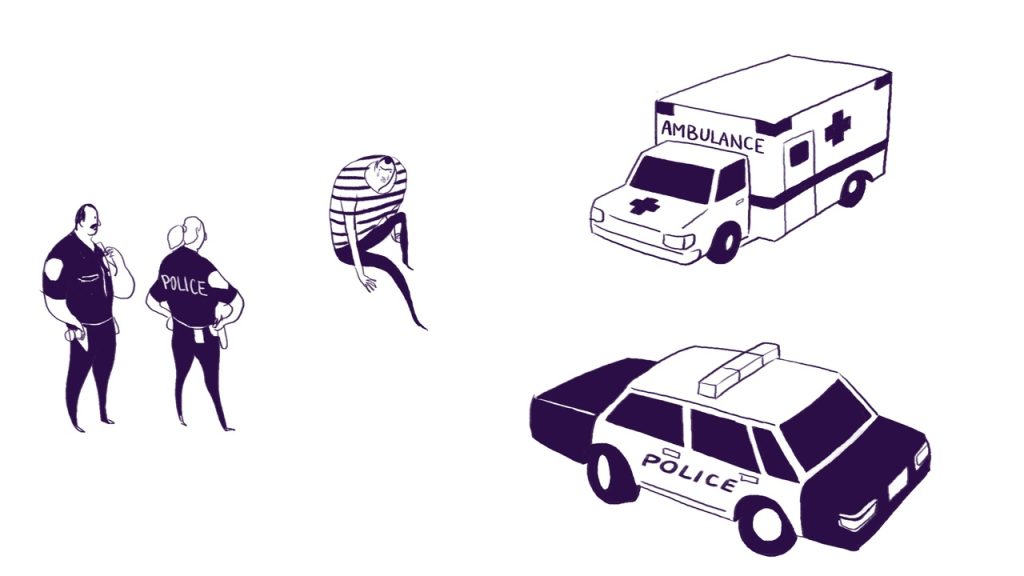What Happens If Sober Housing Doesn’t Work Out?

A member of Allies in Recovery’s member site recently expressed concern about how halfway houses / sober housing deal with overdose or relapse.
A membership at Allies in Recovery brings you into contact with experts in the fields of recovery and treatment for drug and alcohol issues. Our learning platform introduces you to CRAFT and guides you through the best techniques for unblocking the situation. Together we will move your loved one towards recovery. Learn more here.
“If an addict is in a halfway residence, and they use, they are then forced to leave. I don’t understand. They are put out the door onto the street, so that would put them right back full-time from where they came. No help, no nothing. What do you think about this?
My son has been in – out – and back into a residential halfway in Springfield. Since he has been there, there have been 2 or 3 overdoses. However, the staff did not know how to use Narcan. While one of the residents did, they weren’t allowed to administer it, probably due to the legality. They just call an ambulance and then the resident must leave the residence and is back out in the street again.
What, if anything, can be done to help them?”
Dominique Simon-Levine responds to these questions below
Being thrown out for using drugs or alcohol in a residential program is controversial. Sober housing programs argue that a house and milieu cannot be kept safe if someone is using, so that person is required to leave.
In order to start anew with the process of sobriety, a resident who has relapsed ideally should be sent to a more intensive level of treatment (for example: clinical stabilization services or CSS in Massachusetts). Too often though, nothing is available and the only option is detox. This however may not be medically appropriate if the drug use/relapse was brief. With nowhere obvious to go, the person ends up back on the street in a full-blown relapse.
The other scenario is that the person who uses denies it. Then, angry at being discharged from the house, he/she refuses any further help, and ends up on the street.
Here is a good link that describes sober living.
Residential programs expect residents to follow the rules
Their obligation to a resident therefore ends when he/she relapses. One of the greatest difficulties with our system of care for substance use is how silo’d it is. Providers aren’t reimbursed for warm hand-offs or getting someone from program A to program B. Sadly, there are just too many ways people can slip through the cracks.
Families are often the only ones stepping in. Our blog posts and learning modules on our member site repeatedly stress this. We thus encourage you to help your loved one into Program A, then from Program A to Program B, and so on.
Case managers or private consultants
To this, we add one more possible resource: you may be able to use the services of a private consultant or publicly funded case manager.
The New York Times published a piece on private consultants who research appropriate treatment options and shepherd a person through the process. This of course is for families who can afford such a service. Read the article here.
For the rest of us, there are case management programs throughout the country supported through state or federal aid. Case managers refer and follow someone through the system and through the cycle of recovery. One place to look for a case management program is SAMHSA.gov, then click on grants.
They archive grants by year of award. There are several initiatives that support case management services. Here are several from grant year 2015.
Follow this link and click on the initiative to see if any of the grantees are near you:
Don’t let the titles of these grant initiatives deter you from calling them. Individual grantees have different criteria for admission.
The family will most likely have to fill the gaps
Prolonged and seamless treatment for substance problems is difficult to make happen. When someone gets discharged from a sober home for using, the family needs to step in and push for more treatment. Look for case management. If none is available, the family will have to be that case manager.
This certainly adds to an already exhausting effort on your part. But putting energy into getting your loved one into or back into treatment is the best way to end substance use in your family.
A membership at Allies in Recovery brings you into contact with experts in the fields of recovery and treatment for drug and alcohol issues. Our learning platform introduces you to CRAFT and guides you through the best techniques for unblocking the situation. Together we will move your loved one towards recovery. Learn more here.
